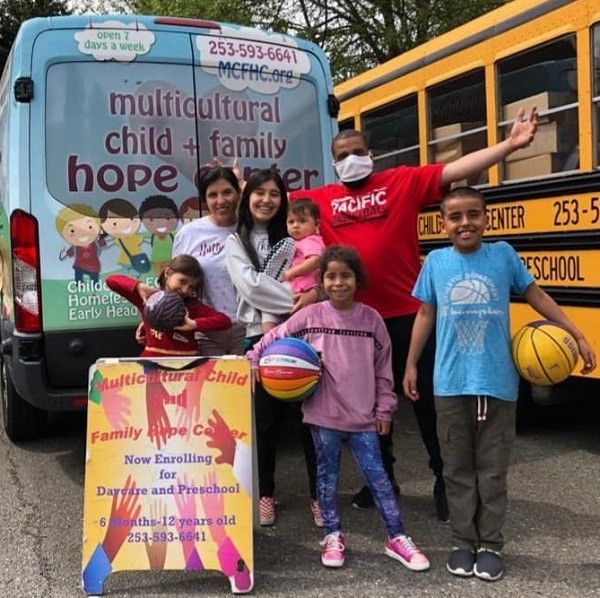
Juanita Salinas-Aguila: Please tell us a little bit about yourself.
Gail Neal: The Multicultural Child and Family Hope Center is a nonprofit social services agency in Tacoma, Washington. We educate, empower and uplift our children, youth and families, communities of color and highly impacted demographics through relationships that create trust, foster understanding and increase access to opportunities. Our staff team have embodied the commitment to serving with a “whole child” approach. We meet our children and families where they are, and surround them with supportive, strength-based, culturally relevant services that allow them to identify needs, set goals and navigate toward their unique definition of self and family stability.
JSA: Please provide a brief description of your organization’s work and the communities you serve.
GN: We serve children, families and individuals from military families, families experiencing homelessness or housing instability, low-income, foster/kinship care, CPS involved/at risk of involvement and BIPOC communities. We provide wrap around services for these populations through early learning, childcare, respite childcare, family support services, parent-child visitation (Family Time), transitional housing, homeless prevention, Father Engagement, recovery from substance abuse, individuals with mental health concerns/needs, domestic violence and sexual assault victim support, and women and mothers at-risk of homelessness. We are dedicated to creating learning environments and professional development centered on children and their teachers, including founding an organization focused on supporting communities of learning for professionals.
JSA: How are you and/or your organization working to combat systemic inequities and social disparities?
GN: Our team endeavors to minimize barriers to access for programs and services that we offer. We implement programs that create a “one stop shop” for families to support needs and goals that intentionally and directly project families to opportunities of success. We partner with agencies and organizations to create a seamless referral process for additional support services that fit individual needs. We have been referred to as “gap fillers” for the community. We address the disparities that systems create that perpetuate for families, particularly families of color, to provide equitable opportunities for services.
JSA: Why is this work important to you?
GN: Every individual deserves to have the tools, skills and support system to live a healthy and happy life. We know that there is power in numbers, and if we create a village amongst the families we serve, the generation that we help to raise up will be supported and better set up for success than the last; they can then pass their knowledge, skills and wisdom onto the next. The work we do is setting the stage for generational change that will impact our community.
JSA: What are the challenges of doing this work?
GN: Adequate and sustainable funding, program capacity and staff support to address the needs of the community.
Our capital campaign is focused on a new building that will expand the capacity for all of our programs in order to serve more children and families in our community. One of our most prominent challenges is that we are a unique agency in the way we serve our families. We always center around the family or individual and serve them as a person, not a client. Unfortunately, that is not always reciprocated by other neighboring services in our community. Leaving many individuals and families with a feeling of distrust of services that often hold a resource that would greatly benefit the household. As a result, we have prioritized providing families with self-advocacy skills and the comfort of knowing our agency will never turn them away.
JSA: In your opinion, what more needs to be done to ensure a just, equitable future for all?
GN: More staff, organizations and agencies that serve families and are equipped with the experience, background in trauma informed practice/cultural competency and who operate from a heart to see our community thrive. Intentional and meaningful training that address the complexities of bias, racism, and systematic barriers to success and achievement across the various systems in which our populations must navigate. Developing front line staff teams that are aware of, have experience with, and/or are committed to facing the challenges that come with inequity and injustice.
JSA: How can others support your work?
GN: Call to volunteer or help us toward our new building! We also welcome donations!